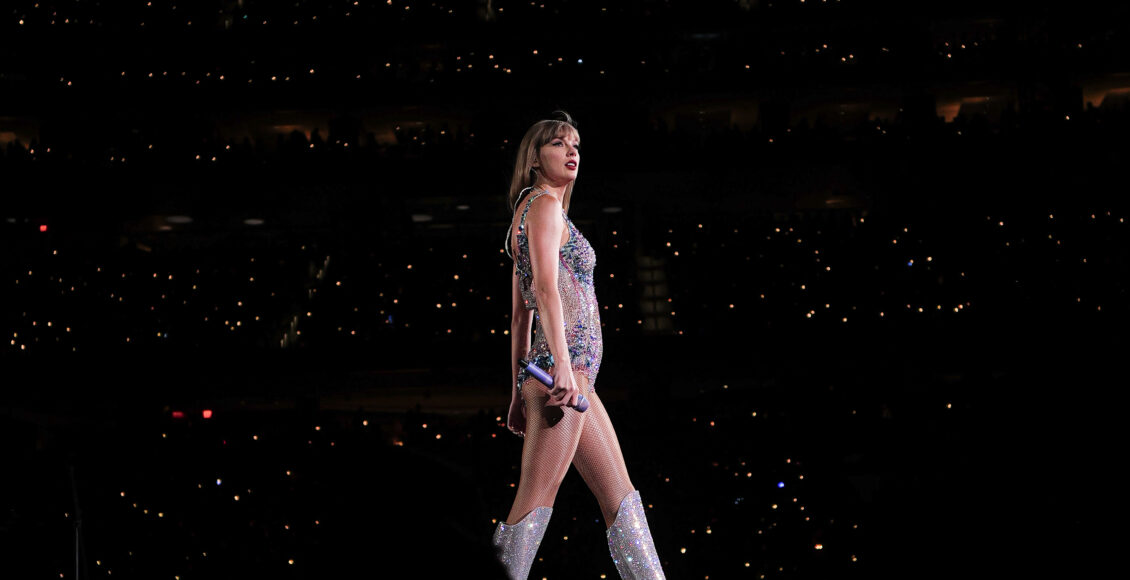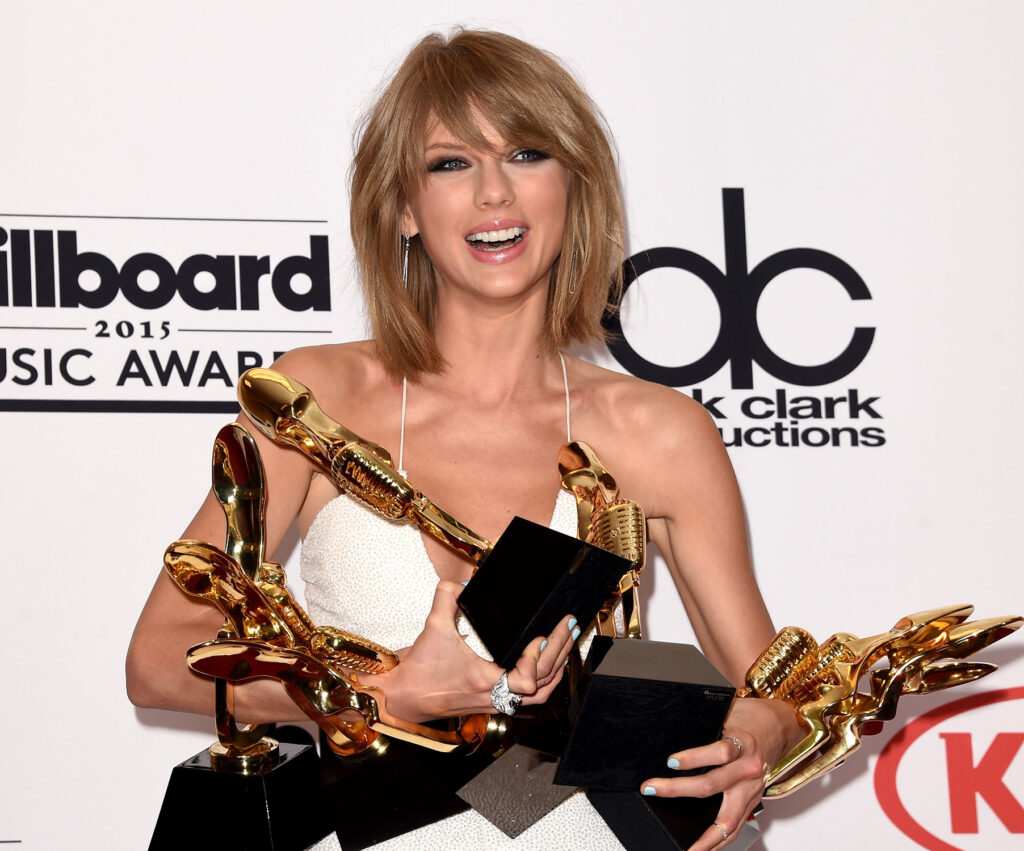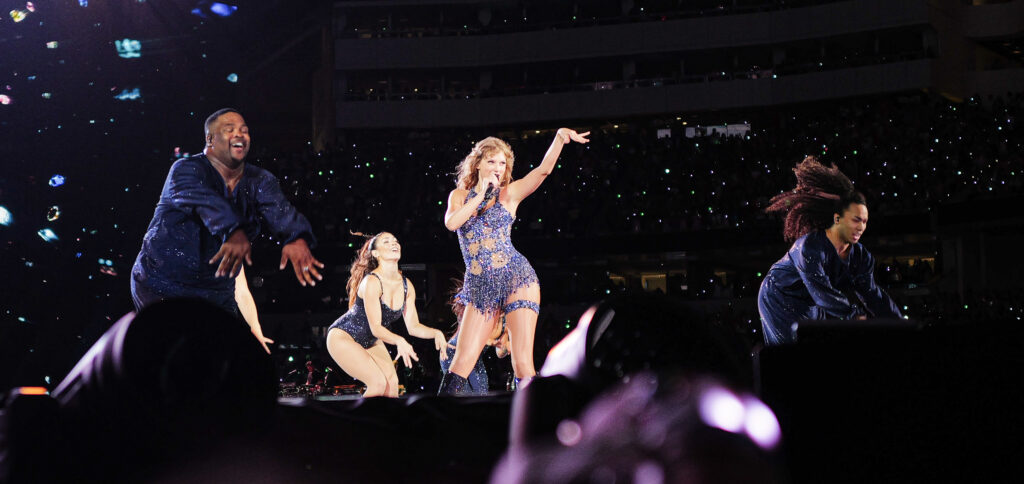“Making My Own Name”: Taylor Swift’s Trouble with Mainstream Feminism

With the ongoing record-breaking success of the Eras Tour, American singer Taylor Swift continues to have a dominant presence in the music industry. Her nearly two-decade career has crossed multiple genres, including country, alternative, and pop, and she has won 12 Grammy awards. However, Taylor Swift is known for more than just her music. By advocating for women’s equality in the male-dominated music industry and speaking out against the everyday sexism women face, Swift’s actions have caused many fans to view her as a feminist icon.
Despite clear feminist stances, such as criticizing the slut-shaming she has been a victim of in her most recent album “1989 (Taylor’s Version),” Taylor Swift has not always been a public feminist. When fans praised her for representing female empowerment through her lyrics, she appeared to have avoided association with feminism altogether in a 2012 interview, by emphasizing that she only writes “songs about what [she] feels.” It wasn’t until two years later that Taylor Swift openly embraced a feminist image by explaining, “I’ve been taking a feminist stance without actually saying so.”
Since then, Taylor Swift and her fans have continued to declare that she is a feminist, but does she actually take such a stance?
The Evolving “Reputation” as a Feminist Icon
From the beginning of Taylor Swift’s career, fans have found her success inspirational while still relating to her personally. Writing, producing, and performing chart-topping hits and Grammy nominations while still in her teens, Taylor Swift gained widespread appeal among a diverse audience that spanned multiple generations. From the picturesque small-town teenage romance described in “Fearless” to the fantasized big-city-move found in “1989,” Taylor Swift’s lyrics follow the progression of her life while also relating to the experiences of other women across various stages of their own lives. Even with success, she maintains a personable image by rejecting the stiffness that is common among celebrities at award shows and in openly sharing her life on social media, from videos of her cats to posting what vitamins she takes.
Inspiration and relatability among her fans are what connect Taylor Swift’s success to an image of female empowerment. When women connect with her through her lyrics and then witness her continuously win one award and nomination after another, they feel inspired, believing they, too, can succeed in their current stage of life. Rather than another award or nomination being an accomplishment for Taylor Swift alone, her fans shape her accomplishments into an empowering representation of what women, in general, can achieve.

Taylor Swift’s status as a feminist icon continues as she calls out the double standards of the music industry. Constantly facing criticism that she writes too much about her love life, Swift openly challenges this notion by asserting that many male music artists write about their romantic lives as well without the same criticism. She also opposes how the music industry often diminishes women’s success. In her 2019 Billboard Woman of the Decade speech, she describes how people have been quick to doubt women’s success “whether you deserve to be there, whether your male producer or co-writer is the reason for your success, or whether it was a savvy record label.”
By calling out the double standards in the music industry and defending the achievements of women against undue criticism, Taylor Swift challenges the gender inequality that is rampant in the music industry. This only increases the admiration of her fans who view her as empowering women by both embodying a successful music career and directly criticizing gender inequality.
The Limiting “Style” of Mainstream Feminism
Although Taylor Swift has been deemed a feminist icon in popular culture, her expression of feminism remains limited. As a white, wealthy, celebrity, she presents an oversimplification of women’s experiences and often overlooks the multitude of societal barriers and oppression that women face. This exclusive approach towards gender equality is a typical characteristic of mainstream feminism.
Mainstream feminism has historically focused on the experiences of white and educated women. This runs contrary to popular ideologies in the feminist movement today, where many women have advocated for more intersectional feminism. Intersectionality considers how multiple aspects of a woman’s identity contribute to multiple interconnected experiences of oppression and inequality, such as systemic racism, structural socio-economic disparity, and so on. While intersectional feminism has been incorporated into the discourse surrounding women’s rights today, much of popular culture still defaults to a limited emphasis on traditional mainstream feminism.
Taylor Swift is not exempt from these cultural trends. For example, in 2015, she drew public criticism for her response to Nicki Minaj’s tweet about the need for more diversity in the music industry— rather than supporting Minaj’s sentiment for increasing diversity, Swift accused her of “[pitting] women against each other.” This misguided, narrow focus on potential conflict between women failed to grasp the central point of Minaj’s call for diversity, and as a result, it revealed Swift’s obliviousness towards the experiences of women outside of a white, heterosexual, and wealthy identity. Combined with the romanticized colonial-esque music video of “Wildest Dreams” and the more recent “Anti-Hero” body-shaming controversy, Taylor Swift has fallen into the exclusive patterns of mainstream feminism.
Swift’s mainstream perspective of feminism becomes more evident in the ways she has capitalized on her status as a feminist icon. With the release of “The Man” music video and the Miss Americana documentary, she further cements her feminist image with catchy lyrics that criticize double standards and a deeper look into her daily expressions of feminism— however, she also uses that image to accrue capital and success. This commercialization of feminism can only promote Taylor Swift’s limited personal experience. In popularizing her narrow version of feminism, she then upholds a barrier to achieving an intersectional feminist lens.

Although Taylor Swift may not be able to express intersectional feminism through only a few pop songs or comments in interviews, her status as a feminist icon still has an immense impact. Imagine how powerful it would be if her lyrics and public comments were more intersectional! Swift’s mass popularity and influence draw attention to gender inequality, so more promotion of intersectional feminism could potentially move her large fan base, and even the general public, towards diverse feminism.
This shift may already be starting. Recently, Taylor Swift has been making progress toward intersectional feminism in both her public statements and music. She has become more vocal about politics, particularly concerning rights for the LGBTQ+ community and racial minorities, and she also has a diverse group of dancers and singers performing with her on the Eras Tour. While more than a few political posts and hiring decisions are needed for Taylor Swift to demonstrate true intersectionality, continued representation of the diverse experiences of all women may eventually allow her to be deemed more of an intersectional feminist icon.
Edited by Lily Molesky.
Featured Image: “Taylor Swift Eras Tour: Lover Set” by Paolo V is licensed under CC BY 2.0.”
